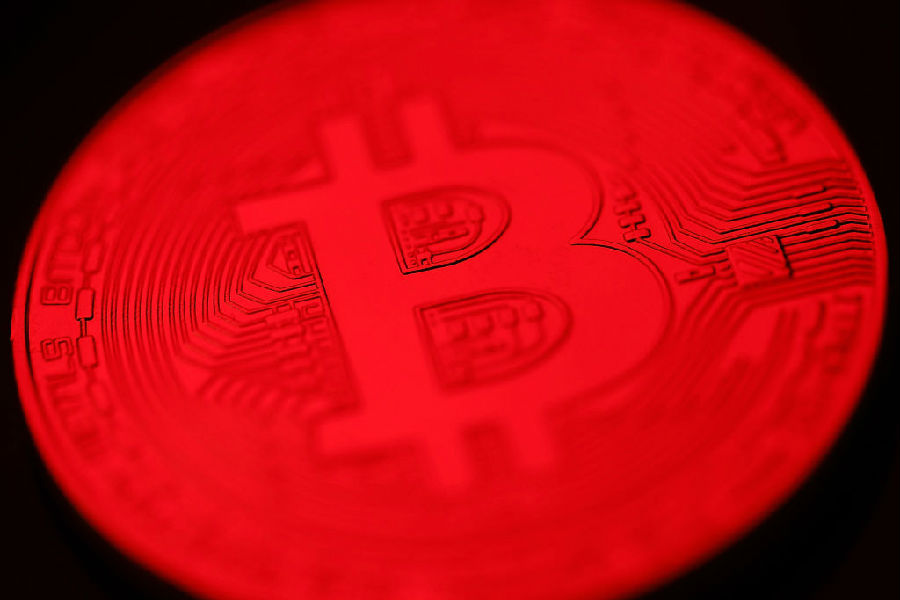The mysteries of bitcoin are turning heads yet again this week. At the start of the year, the digital token was worth $1,000; on Thursday, it breached $16,000. This is eye-popping, particularly given that so few investors actually understand how cryptocurrencies really work.
上周,比特币再次使人们目眩神迷。今年初的时候,这种数字代币单枚价格还只是1000美元左右;上周四却突破了1.6万美元。如此大的涨幅令人瞠目结舌,尤其是考虑到没多少投资者真正了解这种加密货币究竟如何运作。
But amid this frenzy, here is a more startling idea to ponder: what is happening with bitcoin is not actually the most head-spinning technological development in finance today. Far from it. Away from the public gaze, there are a host of other digital innovations emerging that have attracted little public attention, yet have more far-reaching implications.
但在这种狂热氛围中,有一点细思起来更加令人惶恐:发生在比特币身上的景象实际上并非当今金融领域最令人头晕目眩的技术发展。绝非如此。在公众视线之外,还涌现出了很多其他数字创新,这些创新虽没怎么引起公众的注意,却有着更深远的意义。
Consider the structure of markets. A few decades ago, most investors assumed that markets were a place where human brokers traded securities, on behalf of flesh-and-blood investors, driven by strategies devised in their brains (or investment committees).
想想金融市场的结构。几十年前,大多数投资者都认为,金融市场是一个人类经纪人代表真人投资者买卖证券的地方,所依据的是他们的头脑中(或投资委员会)设想出的策略。
But today that idea is as quaint as assuming that currencies are controlled by a central bank. Marko Kolanovic, a JPMorgan analyst, estimates that a mere 10 per cent of US equity market trading is actually now conducted by discretionary human traders; the rest is driven by various rules-based automatic investment systems, ranging from exchange traded funds to computerised high-speed trading programs.
但如今,这种想法就如同认为所有货币由一家央行控制一样古怪。摩根大通(JPMorgan)分析师马尔科?科兰诺维奇(Marko Kolanovic)估计,如今美国只有10%的股市交易由拥有自由决定权的人类交易员操作;其余的则由各种基于规则的自动投资系统——从交易所交易基金(ETF)到计算机化的高速交易程序——操作。
Of course humans write this code, and sometimes oversee trades. But at a recent financial technology conference at Michigan Law School, regulators and academics estimated that computers are now generating around 50-70 per cent of trading in equity markets, 60 per cent of futures and more than 50 per cent of treasuries. Increasingly, machine learning and artificial intelligence are being added to the mix, to analyse data, trade securities and offer investment advice.
当然,人类编写了这些代码,有时也监督交易。但在密歇根法学院(Michigan Law School)最近举行的一场金融技术会议上,监管者和学者们估计,计算机目前产生了证券市场约50%至70%、期货市场60%、国债市场逾50%的交易量。机器学习和人工智能正日益被采纳,用于分析数据、交易证券并提供投资建议。
What we are seeing, in other words, is the rise of self-driving investment vehicles, matching the auto world. But while the sight of driverless cars on the roads has sparked public debate and scrutiny, that has not occurred with self-driving finance.
换句话说,我们当前正看到“自主驱动”(self-driving)投资工具的兴起,如同自动驾驶汽车的到来。但是,虽然无人驾驶汽车上路的前景引发了公众辩论和审视,“自主驱动”金融领域还没有出现这种情况。
This needs to change. Theoretically, digital finance could deliver huge benefits. As the Basel-based Financial Stability Board noted in a report last month, computers trade faster and more accurately than humans, and analyse bigger volumes of data to exploit price differentials. In good times, that should make markets more liquid and efficient.
这种情况需要改变。理论上讲,数字金融可以带来巨大收益。正如总部位于巴塞尔的金融稳定委员会(Financial Stability Board)上月在一份报告中指出的,计算机交易的速度比人类更快、准确性更高,可以分析更庞大数据,以利用价差获益。在经济繁荣时期,这应该会令金融市场更具流动性、更高效。
But, as with self-driving cars, there is a catch: technology is moving faster than politicians (or voters) understand, and outstripping the legal and regulatory frameworks. Nobody yet knows how to assign liability if a self-learning financial program goes haywire. “How are we supposed to think about intent?” asks Yesha Yadav, a law professor at Vanderbilt University.
但正如自动驾驶汽车一样,这里面存在一个隐患:技术进步的速度超过了政客(或选民)理解的速度,而且超越了法律和监管框架。如果一个自主学习的金融程序失控,没有人知道该如何确定责任。“我们该如何思考其背后的目的?”范德比尔特大学(Vanderbilt University)法学教授耶莎?亚达夫(Yesha Yadav)问道。
There are gaps in software laws. In the US, it is generally presumed that manufacturers have legal liability for product flaws. But as Washington’s Office of Financial Research has noted, “software developers are not generally subject to US product liability requirements”.
软件方面的法律也存在漏洞。在美国,一般认为,制造商应对产品缺陷负法律责任。但正如美国政府下属的金融研究办公室(Office of Financial Research)指出的,“软件开发者通常不受美国产品责任要求的约束”。
Another problem is regulatory fragmentation: although digital finance straddles geographical borders and asset classes, regulators do not. That creates a high risk that issues fall between the cracks. In turn, this fuels another issue: the technology is so fast-moving and opaque, that regulators find it hard to assess the cumulative impact or risks of contagion.
另一个问题是监管碎片化:数字金融可以跨越地理边界和资产类别,但监管机构却做不到。这就产生了一个很大的风险,即问题可能被忽略。这反过来又引发了另一个问题:技术进步如此之快且不透明,监管机构将发现很难评估问题蔓延的累积影响或风险。

This is worrying. In recent years we have already seen some mysterious flash crashes, or sudden wild price swings, erupt in equity, bond, commodity and currency markets, apparently sparked by automated trading. This has not caused lasting damage, since these events were temporary and exchanges introduced measures to offset them in future. But nobody quite knows why these flash crashes keep occurring; and regulators admit that the arrival of AI will make it even harder to determine what is happening.
这令人担忧。近年来,在股票、债券、大宗商品和外汇市场,我们已经目睹了一些显然是由自动交易引发的离奇闪电崩盘或者突然的大幅价格波动。这些并未造成持久破坏,因为这些波动很短暂,而交易所也出台了未来防范措施。但没人确切知道为什么此类闪电崩盘不断出现;监管机构承认,人工智能的到来将使得确定究竟发生了什么更加困难。
“Applications of AI and machine learning could result in new and unexpected forms of interconnectedness,” the FSB notes, adding that the “lack of interpretability or ‘auditability’ of AI and machine learning methods could become a macro-level risk”.
“人工智能和机器学习的应用可能带来新的、让人意想不到的联通形式,”金融稳定委员会指出,并表示“人工智能和机器学方法缺乏可解释性或‘可审核性’可能会变成一种宏观层面的风险”。
Digital evangelists will retort that since the arrival of the telegram, new technology has posed challenges for regulators; they also insist that the benefits of innovation more than offset the risks. Hopefully so. But the key point is this: just as we are scrutinising self-driving cars, we need to have a public debate about the computing revolution in finance. If the crazy antics of cryptocurrencies spur this, then bitcoin will have performed a public service.
数字技术倡导者会反驳称,自从电报问世以来,新技术就给监管者带来了挑战;他们还坚信,创新的好处要大于风险。希望如此。但关键在于:正如我们仔细审视自主驾驶汽车一样,我们需要对金融领域的计算革命展开一场公开辩论。如果加密货币带来的狂热能够引发这场辩论,那么,比特币也算提供了一项公共服务。












